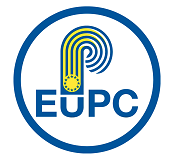2020
British plastic packaging tax restrictive for entrepreneurs, but more environment-friendly than EU plastics tax
PUPC Press Release 16.03.2020
The UK government has unveiled a plan to tax plastic packaging that doesn’t contain at least 30% recycled plastic. "Contrary to the EU proposal, the British solution explicitly mentions investments in recycling and CO2 capture infrastructure," says Robert Szyman, Director General of the Polish Union of Plastic Converters (PUPC).
Under the project published bythe UK authorities, the plastic packaging tax rate of £200 per tonne will apply to producers and importers. The solution, which will enter into force in 2022, is significantly different from a recent proposal put forward by the European Commission. In its initial proposal, the commission envisages a contributions from member states at 800 euros per kilogram of non-recycled plastic packaging waste.
“The EU proposal is aimed at boosting the bloc’s budget and the tax revenues will not be spent directly on strengthening local waste recycling and management systems. This may lead to discrimination of countries such as Poland, which need huge investments in this area. Directives obliging member states to produce only recyclable packaging by 2030, together with plans to introduce a minimum share of recycled materials in products, are already posing a huge challenge for the industry,”says Robert Szyman, Director General of PUPC.
According to PUPC experts, the British proposal to introduce fees from 2022 gives entrepreneurs a chance to adapt to the new reality. It also provides protection for small and medium-sized entreprises by introducing a minimum threshold of 10 tonnes. The British government also signals that revenues from the tax will be earmarked directly for additional investment in recycling and CO2 capture infrastructure. According to the British government's estimates, the weight of recycled plastics will increase by 40 percent, which will translate into saving almost 200,000 tonnes of carbon dioxide emissions.
"According to PUPC, the British solution seems to be a more sustainable approach toward environmental protection than EU proposals. Although introducing this levy will pose a significant challenge for local entrepreneurs, it stands a real chance to increase the use of recycled materials," predicts Robert Szyman.
PZPTS believes that the European Union should take into account the need to generate funds for investment linked to recycling infrastructure for countries with lower recycling levels in order to provide a level playing field with those, who already have more developed mechanisms. This type of solution would see member states whose economies grewat a higher environmental cost (mainly old member states) bearing additional, higher charges – an outcome that seems fairer than fees linked to existing infrastructure. The latter impose a significant burden on the economies that did not have the possibility of intensive growth in the era of no costs of environmental protection, a situation that would deepen divisions in the EU.
The EU should also take into consideration the cumulative burden imposed on the plastics industry, which should not adversely affect the decisions of food producers related to the choice of worse environmental options. Paradoxically, too high a cost (currently envisaged to be 4 times higher than in the UK) may impact the choice and use of other materials in packaging, where the environmental footprint is bigger than in the case of plastics. This would lead to a situation where the burden on the environment would be greater, and thus the measure would be counterproductive.
Additional information is provided by Maciej Powroźnik and Robert Szyman.



Download